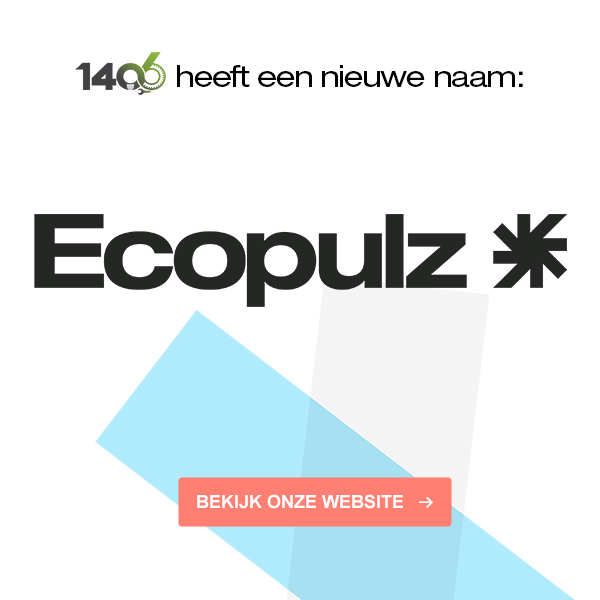The heat transition in the Netherlands has long been a symbol of progress and sustainability. With ambitious goals for 2050 and growing pressure from both regulations and society, it was expected that this transition would gain momentum in the coming years. Yet we are currently seeing the heat transition falter precisely because of the upcoming Collective Heat Supply Act (WCW). This new legislation, intended to regulate the heat market, brings uncertainty and causes delays. At the same time, the need to keep the transition affordable is growing as businesses and consumers alike face rising energy costs.
In this context, it is more important than ever to be smart about the resources and assets available to companies. Asset Management-as-a-Service (AMaaS) offers a solution that addresses not only the complexity of the heat transition, but also the need for affordability and efficiency. In this vision paper, Ramon, Chief Enabling Organizations at Ecopulz, outlines how AMaaS can contribute to the success of the heat transition in the Netherlands, even at a time of increasing challenges.
The heat transition and the challenge of the Collective Heat Supply Act (WCW)
The WCW was designed to clarify the responsibilities of heat companies and municipalities when constructing heat networks. Although this law should eventually provide more structure, the transition to these new regulations is actually creating uncertainty right now. Heat companies do not know exactly what investments are needed and whether their current plans are still in line with the new rules. This is problematic because the heat transition in the Netherlands was already facing enormous challenges, such as the need to make existing infrastructures more sustainable and integrate new, renewable heat sources. The uncertainty surrounding the WCW makes it harder to move forward and puts a brake on investment in new technologies and solutions. At the same time, affordability is becoming increasingly important, as rising energy and commodity costs put pressure on heat companies' margins.
The solution: asset management-as-a-service (AMaaS)
In this context, AMaaS offers a flexible and scalable solution that allows heat companies to manage the complexity of the heat transition. AMaaS involves outsourcing the complete management of physical and digital assets to a specialized service provider, who provides maintenance, monitoring and optimization. This model not only provides technical support, but also helps companies control costs and improve efficiency.
At Ecopulz, we believe AMaaS is a powerful tool to address the current challenges within the heat transition. By outsourcing asset management, heat companies can focus on their core business and make the best use of their resources. Moreover, they can benefit from the latest technologies without having to make major investments themselves.
Affordability and efficiency: core of heat transition
One of the biggest concerns within the heat transition is the affordability of switching to renewable heat solutions. As energy prices rise and the market becomes increasingly competitive, it is essential to reduce operational costs and maximize efficiency. AMaaS offers a solution here by helping companies spread costs and ease the financial burden of large capital investments. With AMaaS, heat companies can benefit from economies of scale. They share the cost of advanced technologies - such as sensors and data analytics platforms - with other companies within an ecosystem. This gives them access to the best tools and solutions without having to bear the full cost themselves. This not only helps companies keep costs down, but also makes them more flexible to market and regulatory changes.
Collaboration and innovation: the power of AMaaS
Within the heat transition, collaboration is crucial. The emergence of new technologies and the growing importance of sustainability mean that no single organization can accomplish the transition alone. AMaaS encourages collaboration between heat companies, technology partners and other stakeholders, pooling knowledge and resources. At Ecopulz, we see AMaaS as a model that fosters innovation. By working with specialized partners, heat companies can take advantage of the latest developments in asset management, such as predictive maintenance and real-time monitoring. This enables them to manage their assets more efficiently, leading not only to lower costs, but also to increased infrastructure reliability and longevity.
The role of digitization within AMaaS
Digitization plays a key role in the success of AMaaS. By using smart sensors, IoT platforms and artificial intelligence, heat companies can monitor and optimize their assets in real time. This enables them to make faster and more informed decisions, preventing problems before they occur and improving the performance of their systems. The benefits of digitization go beyond improving operational efficiency. By using advanced data analytics, heating companies can achieve their sustainability goals faster. For example, by collecting accurate data on the energy consumption and performance of their systems, they can minimize carbon emissions and optimize energy efficiency.
The future of AMaaS within the heat transition
Although the heat transition in the Netherlands is currently slowed by the uncertainty surrounding the WCW, the long-term goals remain unchanged. The pressure to become more sustainable will continue to increase in the coming years, and companies unable to manage their assets in an efficient and sustainable manner will fall behind. AMaaS offers heat companies the opportunity to stay ahead, even in these difficult times.
At Ecopulz, we believe AMaaS will play a key role in the future of the heat transition. It enables companies to control costs, reduce risk and achieve their sustainability goals at the same time. It also gives them the flexibility to respond quickly to market and regulatory changes, which is essential in a dynamic sector like the heat transition.
Conclusion
The heat transition in the Netherlands is a complex process complicated by new legislation and economic challenges. The upcoming WCW has created uncertainty, delaying many projects and making the focus on affordability greater than ever. In this context, AMaaS offers a solution that helps companies manage their assets efficiently and sustainably.
AMaaS enables heating companies to take advantage of the latest technologies and insights without the financial burden of large investments. This helps them not only save costs, but also become more flexible and innovative. At Ecopulz, we believe that AMaaS is the future of asset management within the heat transition, and that it will enable companies to achieve their sustainability goals while meeting the challenges of our time.

